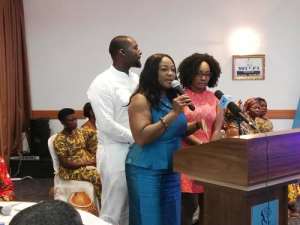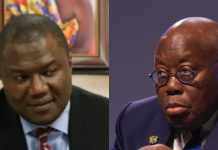
The Executive Director of the Henry Djaba Memorial Foundation, Dr. Otiko Afisah Djaba has called for an end to the numerous challenges militating against the sustainable development of the Ghanaian girl child.
According to the former Minister for Gender, Children and Social Protection, it was time to address all the challenges and abuses such as child marriage, sexual harassment, stereotyping, violence against the girl child, girls still not in school or dropping out of school, ‘kayaye’, the infamous sex for grades, defilement, rape, trafficking in girls and girls of school-going age hawking on streets during school hours.
In a statement issued in Accra in commemoration of the International Day of the Girl Child 2019, Dr. Otiko Djaba also frowned against kidnapping of girls, girl child prostitution, poverty, overburdening handling of house chores solely by girls, teenage pregnancy, using girls as househelps and nannies, female genital mutilation, breast cancer and other negative and harmful traditional and cultural practices impeding the growth of girls.
“Globally, more than 130 million girls are not attending primary or secondary school, according to UNESCO institute of statistics. This indicates that, every day, girls around the world are denied their right to education, knowledge, skills and opportunities to create a better future. Other statistics also show that, each year, approximately 12 million girls under 18 would be married; that is 32,877 each day, nearly 1 girl every 2 seconds is getting married”.
She indicated that in Ghana, research had shown that, more than one in every five girls was married before the age of 18 and 5% are married before their 15th birthday.
Dr. Otiko Djaba bemoaned how those challenges especially child marriage had curtailed the dreams and aspirations of many girls in most Ghanaian communities.
The ‘Let’s Talk Ability’ TV show host also called Government, Parliament and Civil Society Organisations to ensure the girl child in Ghana did not suffer Female Genital Mutilation (FGM) which visits the victims with keloid scar formation, damage to the urethra resulting in urinary incontinence, dyspareunia (painful sexual intercourse) and sexual dysfunction, increased risk of chronic genital infections, maternal and infant mortality among others.
“An estimated 200 million girls and women in the world have undergone FGM, more than 125 million girls and women alive today have also been cut in 29 countries in Africa. As many as 30 million girls are at risk of being cut before their 15th birthday. About 5% of girls and women of reproductive age in Ghana have undergone FGM with those in certain ethnic groups especially in the Upper East region of Ghana more likely to experience the practice”.
She called for the enforcement of the existing laws and more punitive action against persons who subject girls in Ghana to FGM, defilement, teenage pregnancy and sexual harassment among others.
Dr. Otiko Djaba encouraged Ghana to emulate Nigeria’s introduction of the Anti -Sexual Harassment Bill after the BBC ‘Sex For Grades’ documentary.
She fumed that the Ghanaian girl child had been subjected to various forms of sexual harassment and abuse not only for grades but in the home, at school, the workplace, in religious and political circles.
“We need to develop specific, concrete and innovative initiatives and solutions to improve girls’ access to quality education, sexual reproductive health care, provide early sensitization on their rights, sex abuse, harassment and protection of their rights, provide them with learning opportunities that empower and build knowledge and skills for life and decent work, provide them with training in leadership and galvanize collective action to deliver the 2030 SDGs on gender equality and equity and girls education”.
google.com, pub-6336011652228911, DIRECT, f08c47fec0942fa0








